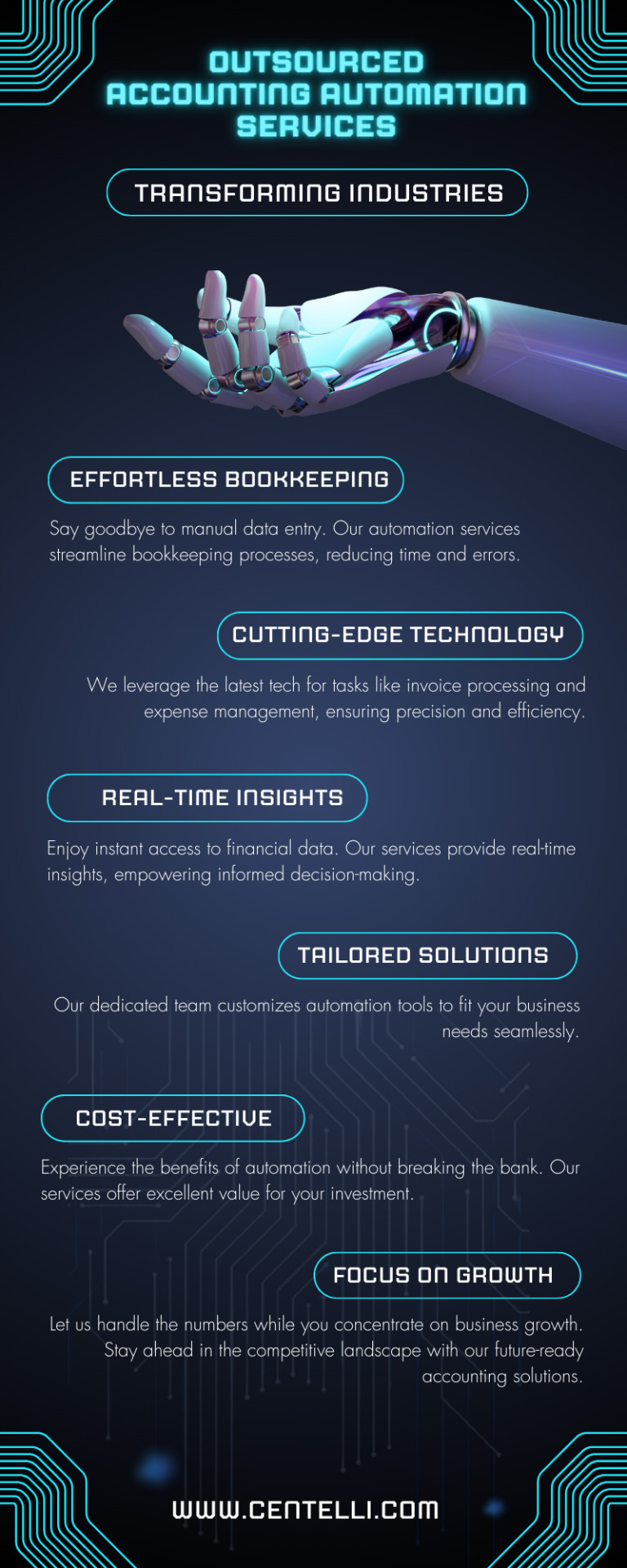#rpa in finance
Explore tagged Tumblr posts
Text
"How RPA is Transforming Financial Operations: A Complete Guide"

Dive into this comprehensive guide on RPA in finance. Learn about its applications, benefits, and real-world examples that showcase how it’s reshaping financial workflows.
0 notes
Text
Trade Finance Process Automation using Robotic Process Automation (RPA) involves leveraging automated workflows and bots to streamline and optimize various aspects of trade finance operations. This technology enables the automation of repetitive tasks, data entry, and document processing, reducing manual effort, minimizing errors, and enhancing overall efficiency in trade finance processes. Automation in trade finance can lead to faster transaction processing, improved compliance, and increased accuracy, contributing to a more agile and competitive financial ecosystem. The blog post on AutomationEdge's website likely delves deeper into the specific benefits and implementation strategies for Trade Finance Process Automation using RPA.
0 notes
Text
Revolutionizing Finance with RPA: Jacky's Group of Companies Leads the Way
In today's fast-paced business world, companies are constantly seeking innovative solutions to streamline their operations and stay ahead of the competition. One such groundbreaking technology making waves in the finance industry is Robotic Process Automation (RPA). Among the pioneers in implementing RPA to transform financial processes is Jacky's Group of Companies, a renowned name in the business world.
Jacky's Group of Companies, with its commitment to excellence, has always been at the forefront of adopting cutting-edge technologies to enhance its operations. With a dedicated team of experts and a forward-thinking approach, the company has successfully integrated RPA into its financial operations, setting an example for others in the industry.
RPA, a game-changing technology, involves the use of software robots or 'bots' to automate repetitive and rule-based tasks. In the finance sector, RPA has immense potential to improve efficiency, accuracy, and cost-effectiveness. Jacky's Group recognized this potential and decided to leverage RPA to optimize its financial processes.
One of the key areas where RPA has made a significant impact for Jacky's Group is in financial data entry and reconciliation. In the past, manual data entry was a time-consuming and error-prone process. However, with RPA, this task has been automated, reducing the risk of human error and increasing efficiency. Now, financial data is accurately processed in a fraction of the time it used to take, allowing the finance team to focus on more strategic activities.
Furthermore, Jacky's Group has also implemented RPA in its accounts payable and receivable processes. Invoices, receipts, and payments are automatically matched and processed, eliminating the need for tedious manual intervention. This has not only accelerated the payment cycle but has also improved vendor relationships through prompt payments.
Another significant advantage of RPA is its ability to enhance compliance and reduce the risk of fraud. Jacky's Group ensures that all financial transactions are in accordance with regulations and company policies. RPA continuously monitors and cross-checks transactions, flagging any discrepancies or anomalies for immediate investigation. This proactive approach to compliance has strengthened the company's financial integrity and trustworthiness.
Moreover, RPA has provided Jacky's Group with valuable insights into its financial performance through data analytics. With the automated collection and analysis of financial data, the company can make informed decisions and optimize its financial strategies. This data-driven approach has enabled Jacky's Group to identify cost-saving opportunities, allocate resources more efficiently, and maximize profitability.
The benefits of RPA in finance are not limited to cost savings and efficiency gains. It also frees up valuable human resources to focus on higher-value tasks, such as strategic planning, financial analysis, and customer interactions. Jacky's Group recognizes the importance of its employees and views RPA as a tool to enhance their capabilities, rather than replace them.
Furthermore, Jacky's Group of Companies has embraced the concept of 'reskilling' its workforce to ensure that employees are well-prepared for the changing landscape of finance. The company offers training and development programs to equip its staff with the skills necessary to work alongside RPA technologies effectively. This approach not only fosters a culture of innovation but also ensures job security for its workforce in an evolving industry.
In conclusion, Jacky's Group of Companies is leading the way in revolutionizing finance with RPA. By integrating RPA into its financial processes, the company has achieved remarkable improvements in efficiency, accuracy, compliance, and data analytics. Jacky's Group's commitment to embracing technology while valuing its employees sets a powerful example for the finance industry.
As businesses worldwide look to enhance their financial operations, the success story of Jacky's Group with RPA serves as an inspiring model. With the potential to transform finance departments across various industries, RPA is undoubtedly a game-changer, and companies like Jacky's Group are at the forefront of this financial revolution.
For more information about how Jacky's Group of Companies is leveraging RPA in finance and other innovative solutions, you can contact them at +971-4-3388900 or email them at [email protected].
0 notes
Text
Unlocking Efficiency and Innovation: The Role of Robotic Process Automation (RPA)

In today's fast-paced and competitive business environment, organizations are constantly seeking ways to improve efficiency, reduce costs, and increase productivity. Robotic Process Automation (RPA) has emerged as a powerful tool that can help businesses achieve these objectives.
What is Robotic Process Automation (RPA)?
Robotic Process Automation (RPA) is a technology that allows businesses to automate repetitive, rule-based tasks. It uses software robots, also known as "bots," to mimic human actions and interact with digital systems. These bots can log into applications, navigate through screens, input data, and complete tasks just like humans would.
The Role of RPA in Business:
RPA can be used to automate a wide range of tasks across various industries and departments. Here are some examples:
Finance and Accounting: Automating tasks such as accounts payable and receivable, invoice processing, and financial reporting.
Customer Service: Automating tasks such as answering FAQs, resolving customer inquiries, and processing orders.
Human Resources: Automating tasks such as onboarding new employees, processing payroll, and managing benefits.
IT: Automating tasks such as provisioning accounts, managing user access, and deploying software updates.
Impact of RPA on Businesses:
Implementing RPA can offer numerous benefits to businesses, including:
Increased efficiency and productivity: RPA can automate time-consuming and tedious tasks, freeing up employees to focus on more strategic and value-added activities.
Reduced costs: RPA can help businesses save money on labor costs, as well as reduce errors and compliance risks.
Improved accuracy and compliance: RPA bots are programmed to follow specific rules and procedures, which can help to improve accuracy and compliance with regulations.
Enhanced process visibility and control: RPA provides businesses with a clear view of their processes, which can help them identify and address bottlenecks.
Improved customer satisfaction: RPA can help businesses improve customer satisfaction by automating tasks such as order processing and customer service interactions.
RPA Services:
Implementing RPA successfully requires a partner with expertise in the technology and a deep understanding of business processes. A comprehensive RPA solution should include the following services:
Document AS-IS Process: This involves mapping out the existing process to identify areas for automation.
Design & Development of Bots, workflows, and forms for process automation: This includes designing and developing the software robots that will automate the tasks.
Bot license (We will use the appropriate underlying technology): This provides access to the software robots and the underlying technology platform.
Infrastructure: This includes setting up the necessary infrastructure to support the Robotic Process Automation (RPA) solution.
Production Deployment of the Bots: This involves deploying the bots to production and monitoring their performance.
RPA support: This includes ongoing support for the RPA solution, such as troubleshooting and maintenance.
Test & Deploy bots to production: This involves testing the bots in a production environment and making any necessary adjustments before they are deployed to full production.
Configuration data changes: This involves making changes to the configuration data of the bots as needed.
Password updates: This involves updating the passwords of the bots as needed.
Errors in executing the Bots: This involves resolving errors that occur during the execution of the bots.
Determining the “root cause” of a recurring issue or incident & recommendations: This involves identifying the root cause of a recurring issue or incident and recommending solutions to prevent it from happening again.
Infrastructure/application related issues: This involves resolving issues with the infrastructure or applications that the bots are interacting with.
Conclusion:
RPA is a powerful technology that can have a significant impact on businesses of all sizes. By automating repetitive tasks, RPA can help businesses improve efficiency, reduce costs, and increase productivity. However, it is important to choose a reputable Robotic Process Automation (RPA) companies with the expertise and experience to help you implement a successful RPA solution.
Ready to embrace the power of RPA?
Contact us today to learn more about how RPA can help your business achieve its goals.
#robotic process automation#robotic process automation rpa#rpa automation#robotic process automation software#rpa software#robotic process automation companies#robotic process automation technology#robotic process automation in healthcare#robotic process automation in banking#rpa solution#robotic process automation for finance#process automation solution#robotic process automation services#robotic process automation for insurance#rpa system#what is rpa automation#robotic process automation solution#robotic process automation benefits#robotic process automation consulting#robotic process automation consultant#rpa service provider#rpa consulting services
2 notes
·
View notes
Text
Discover how a financial services firm streamlined operations, improved customer engagement, and boosted revenue by implementing Microsoft Dynamics 365, Power BI, and RPA for digital transformation.
#Microsoft Dynamics 365 Finance & Operations (F&O)#Microsoft Dynamics 365 Sales#Power BI#D365 Customer Insights#Robotic Process Automation (RPA)
0 notes
Text
0 notes
Text

Enhance your reimbursement strategies with automation. Attend our webinar to learn effective techniques for securing timely and accurate payments.
#intelligent automation#rpa#reimbursement strategies with automation#automation in finance#automation in accounting
0 notes
Text
Rebodoting Efficiency: How RPA is Revolutionizing Finance

The world of finance thrives on accuracy, speed, and efficiency. But with ever-growing data volumes and complex regulations, manual processes can become a burden, hindering productivity and increasing the risk of errors. This is where Robotic Process Automation (RPA) steps in as a game-changer.
What is RPA?
Imagine a tireless, digital assistant that automates repetitive, rule-based tasks in your financial processes. That’s RPA in a nutshell. These “software robots” can mimic human actions, interacting with various software applications and databases to execute tasks like:
Data Entry: Automating data entry from invoices, receipts, and other documents, eliminating manual errors and saving countless hours.
Account Reconciliation: Streamlining account reconciliation by automatically comparing data from different sources and highlighting discrepancies.
Financial Reporting: Generating reports faster and more accurately by automating data gathering and formatting tasks.
Compliance Management: Automating tasks related to regulatory compliance, ensuring timely reporting and reducing the risk of fines.
Benefits of RPA in Finance:
Increased Efficiency: RPA frees up human resources for more analytical and strategic tasks, boosting overall team productivity.
Reduced Errors: By automating repetitive tasks, RPA minimizes the risk of human error, ensuring data accuracy and financial transparency.
Improved Compliance: Streamlined processes ensure timely completion of compliance tasks, minimizing the risk of audits and penalties.
Cost Savings: Reduced labor costs from automation translate into significant cost savings for your financial operations.
Scalability: RPA solutions can easily scale up or down to meet fluctuating workloads, ensuring optimal resource allocation.
Implementing RPA in Your Finance Department:
Here are some key steps to consider when implementing RPA in your finance department:
Identify Repetitive Tasks: Analyze your current workflows and pinpoint tasks that are repetitive, rule-based, and high-volume, ideal candidates for automation.
Choose the Right RPA Tool: Several RPA software solutions are available, each with its own strengths. Evaluate features, integrations, and ease of use to find the best fit for your needs.
Pilot Project and Training: Start with a pilot project to test RPA for a specific process. Train your team on the new system and ensure a smooth transition.
Continuous Monitoring and Improvement: Monitor the performance of your RPA implementation, identify areas for improvement, and continue to optimize the automation of your financial processes.
The Future of Finance is Automated
RPA is rapidly transforming the financial landscape by streamlining processes, improving accuracy, and freeing up valuable resources. As technology evolves, RPA will likely integrate with Artificial Intelligence (AI) to create even more intelligent automation solutions. By embracing RPA, financial institutions can unlock significant operational and cost benefits, allowing them to focus on strategic initiatives that drive growth and success.
Ready to Rethink Your Financial Processes?
Explore the potential of RPA to make your finance department a powerhouse of efficiency. With a well-defined implementation strategy, you can unlock the power of automation and gain a competitive edge in the financial world.
0 notes
Text

#accounting#bookkeeping#finance#outsourcing#startup#accounting softwares#Automation#Accounting Automation#Small Business#RPA#Technology#AI
0 notes
Text
M&A And Fundraising

Our seasoned CFO partners spearhead fund raising projects and M&A campaigns for our clients on retainer or one-time basis. They can help you prepare effective valuation and pitch deck by bringing out the core strengths of your business and articulating the fund utilization plan. Furthermore, help you set-up a detailed data room to ensure seamless M&A due delligence without disturbing day-to-day business.
#best outsourced cfo#cfo consulting#rpa in accounting and finance#consulting cfo services#shared cfo services#accounting services#transaction advisory services
0 notes
Text
RPA for Finance: How to Automate Your Processes and Save Money

RPA can help you automate many of the manual tasks in your finance department, such as accounts reconciliation, invoice processing, and financial reporting. This can free up your employees to focus on more strategic and value-added activities. Learn more about the benefits of RPA for finance and how to implement it in your business.
#RPA for finance#rpa in finance and accounting#rpa in finance#finance departments#finance industry#rpa in banking and finance#rpa in banking industry#rpa for finance#rpa in finance industry#rpa in finance department#rpa for finance industry#RPA in corporate finance#benefits of RPA in finance#RPA automation in finance#RPA in finance processes#Robotic Process Automation (RPA) for Finance Industry
0 notes
Text
#RPA implementation#rpa implementation services#rpa implementation case study#end to end rpa#rpa implementation process#rpa case studies in finance
0 notes
Text
0 notes
Text
Revolutionizing Financial Operations: How Jacky’s Group of Companies Utilizes RPA in Finance
In today's rapidly evolving business landscape, staying ahead of the competition requires more than just traditional strategies. Embracing technological advancements is essential, especially in the realm of finance. Jacky’s Group of Companies, a leading player in various industries, has harnessed the power of Robotic Process Automation (RPA) to transform its financial operations, leading to enhanced efficiency and productivity. This article delves into how Jacky’s Group of Companies has leveraged RPA to revolutionize its finance department, enabling seamless processes and positioning itself at the forefront of innovation.
The Age of Automation in Finance
The digital age has ushered in a wave of automation that is reshaping business processes across industries. One of the most impactful developments in this regard is RPA. RPA involves the use of software robots to automate repetitive and rule-based tasks, freeing up human resources for more strategic and value-added activities. This technology has found its way into various business functions, including finance, due to its potential to reduce errors, minimize operational costs, and improve overall efficiency.
Jacky’s Group of Companies: Pioneering Innovation
Jacky’s Group of Companies, known for its commitment to innovation and customer satisfaction, recognized the potential of RPA in finance early on. By adopting RPA, the company aimed to streamline financial processes, enhance accuracy, and ensure compliance with regulatory standards. This proactive approach aligned perfectly with the organization's values and vision for the future.
Revolutionizing Financial Operations
Implementing RPA in finance requires a meticulous analysis of existing processes and the identification of tasks suitable for automation. Jacky’s Group of Companies embarked on this journey by partnering with experts who specialize in RPA implementation. Through a collaborative effort, the finance team mapped out their processes, highlighting areas prone to errors and inefficiencies.
With RPA, routine tasks such as data entry, invoice processing, and reconciliation were automated, eliminating the risk of human error and significantly reducing processing times. Moreover, RPA bots worked 24/7, ensuring round-the-clock productivity without the need for continuous human intervention.
Enhancing Accuracy and Compliance
In the finance sector, accuracy is paramount. Errors can lead to financial discrepancies, compliance issues, and reputational damage. By integrating RPA, Jacky’s Group of Companies bolstered its accuracy levels, as robots perform tasks with consistent precision and without the fatigue that can plague human workers during repetitive tasks.
Additionally, compliance with regulations and standards is a critical concern for any finance department. RPA can be programmed to follow predefined rules and regulations, reducing the risk of non-compliance. Jacky’s Group of Companies utilized this feature to ensure that all financial transactions and processes adhere to industry guidelines.
Empowering Employees for Value-Added Activities
RPA doesn't replace human employees; rather, it empowers them to focus on higher-value tasks that require creativity, critical thinking, and strategic decision-making. By automating mundane and repetitive tasks, the finance team at Jacky’s Group of Companies could redirect their efforts towards analyzing financial data, identifying trends, and providing insights that contribute to better business decisions.
The Future of Finance with RPA
The success of Jacky’s Group of Companies in incorporating RPA into its financial operations serves as a testament to the potential of automation in revolutionizing finance. As technology continues to advance, the capabilities of RPA are expected to grow even further. With the automation of complex tasks on the horizon, finance professionals will be able to focus on strategic planning, risk management, and driving innovation.
Contact Jacky’s Group of Companies
In conclusion, the incorporation of RPA in finance is a testament to Jacky’s Group of Companies' commitment to embracing innovation. By automating routine tasks, enhancing accuracy, and empowering their finance team, the company has not only improved operational efficiency but has also positioned itself at the forefront of the digital transformation sweeping through the business world. As industries continue to evolve, organizations like Jacky’s Group of Companies inspire others to explore the potential of RPA in shaping the future of finance.
0 notes